A team from Australia Awards in Indonesia and the Australian Embassy in Indonesia has met with Indonesia’s National Disabilities Commission for a broad-ranging discussion on the way forward for inclusion, equity, and diversity in the higher education landscape.
The Australia Awards in Indonesia's Gender Equality, Disability, and Social Inclusion (GEDSI) Working Group, consisting of 15 people from Australia’s Department of Foreign Affairs and Trade and various teams at Australia Awards in Indonesia (AAI), visited the National Disabilities Commission (KND) on 2 February 2024.
Led by Lia Marpaung, the AAI GEDSI Adviser, the group was warmly received by five KND Commissioners, among them notable Australian alumni, Dr Dante Rigmalia, Mr Kikin Tarigan and Dr Rachmita Harahap.
The KND has the task of building awareness about people with disability in Indonesia, drawing on the lived experiences of its commissioners, Dante explained.
"It really helps us if many stakeholders want to broaden their knowledge and perspectives about people with disability. So, when AAI and its GEDSI team planned to meet with us, we were very pleased,” Dante further said.
Australia Awards in Indonesia has created avenues for people with disability to pursue higher education through the Australia Awards Scholarships and Short Courses. People with disability are a targeted category for PhD and Masters Awards, Split-Site Masters and Short Courses.
Although every application form for Australian Awards Scholarships and Short Courses collects data on disability issues, program staff must still speak with each candidate individually to ensure that the support offered is suitable.
Lia said it was, therefore, necessary for the team to have a deep understanding of complex disability issues. Those who attended the meeting were not only advisers but also program implementation staff from all units within the AAI to give everyone an opportunity to learn and gain insights from the discussions and broaden their knowledge and skills.
“When it comes to disability, you have to be prepared to delve further since every person with a disability has a unique set of needs that require different support and adjustment," Lia explained.
"Supporting people with blindness or low vision differs from supporting people with hearing loss or with physical disability. The outcomes will always be better if we approach our work with good understanding on accessibility and inclusivity, and also enthusiasm.”
“From this visit, the working group members got opportunity to know the KND members in person and benefitted from their experience and advice on how to communicate with people with diverse disabilities.”
Lia revealed that the discussion was scheduled for one hour but lasted around three hours. Not only were the working group members enthusiastic participants, but the KND members were also interested in learning more about Australia Awards Scholarships.
“Our commitment is to open up the most expansive possible space in which people with disabilities can be able to achieve higher education, which until now was always thought too difficult to reach," said Lia.
Fresh Perspectives
Diwya Anindyacitta (Nindya), Inclusion and Accessibility Manager at Australia Awards in Indonesia, said that from the discussions with KND, she and the working group members learned about the significant obstacles for people with disability in accessing education.
Only 4% of children with disabilities in Indonesia have access to education, and only 2.8% of people with undergraduate degrees in Indonesia are people with disability, according to data quoted by one of the KND commissioners, Dante Rigmalia. It illustrates the challenge for the AAI program in ensuring the participation of people with disability in the scholarship programs, especially Masters and PhD scholarships.
Nindya also realised the importance of regular dialogues with organisations for people with disability. The discussion highlighted that advocacy for access to education is a long process that demands the participation of multiple parties. Moreover, the discussions must take place with people who have lived experience of disability, Nindya said, recalling the slogan often used in disability advocacy, “Nothing About Us Without Us”.
Within the AAI programs, one of the adjustments for people with disability is the English language proficiency score that must be achieved for entry. The AAI team also regularly advises the Joint Selection Team panel to ensure they are responsive to the needs of people with disability.
Nindya added that her team in the Targeting, Inclusion and Accessibility Unit manages the English Language Training Assistance program, which provides opportunities for prospective applicants from Equity Target Groups (including disability groups) to improve their English language capacity so they can meet the minimum requirements to apply for the Australia Awards Scholarships.
Australia Awards Short Courses also target people with disability as participants. The courses themselves also focus on inclusion and disability as priority topics. Past Short Courses have included the Role of Disabled People’s Organisations in the Implementation of Policy Reform and Organisational Leadership and Management Practices for Disabled People's Organisations.
Productive Relationships
Nindya hopes there will be further collaboration between AAI and the KND, for example, further discussions or professional development activities. She would like to visit other similar institutions in the future.
Dante said the members of the KND were delighted to host the AAI team. "We took away a lot of good, valuable information about the Australian Government's programs for Indonesia, including the AAI program," said Dante.
She was particularly pleased to have the opportunity to discuss Study, Research and Development of Law and Human Rights (P3HAM) initiatives for people with disability.
The KND has the task of building awareness about people with disability in Indonesia, drawing on the lived experiences of its commissioners, Dante explained.
"It really helps us if many stakeholders want to broaden their knowledge and perspectives about people with disability. So, when AAI and its GEDSI team planned to meet with us, we were very pleased,” she said.
"The enthusiasm of our friends from AAI when meeting with us makes us optimistic about continuing to build relationships with many parties so that we can have informed perspectives and perceptions of people with disabilities.”
Both Lia and Dante expressed hope that cooperation between the KND and AAI would enable more people with disability in Indonesia to access higher education, expanding the reach of the Australia Awards Scholarships and Short Courses program to people with disability in numerous remote areas in Indonesia.
Following this productive meeting and discussion, AAI is committed to maintaining open communication and fostering collaboration with the KND and other key stakeholders. This ongoing partnership seeks to ensure the program's outcomes focus on enhancing accessibility and inclusivity for people with disability throughout Indonesia.
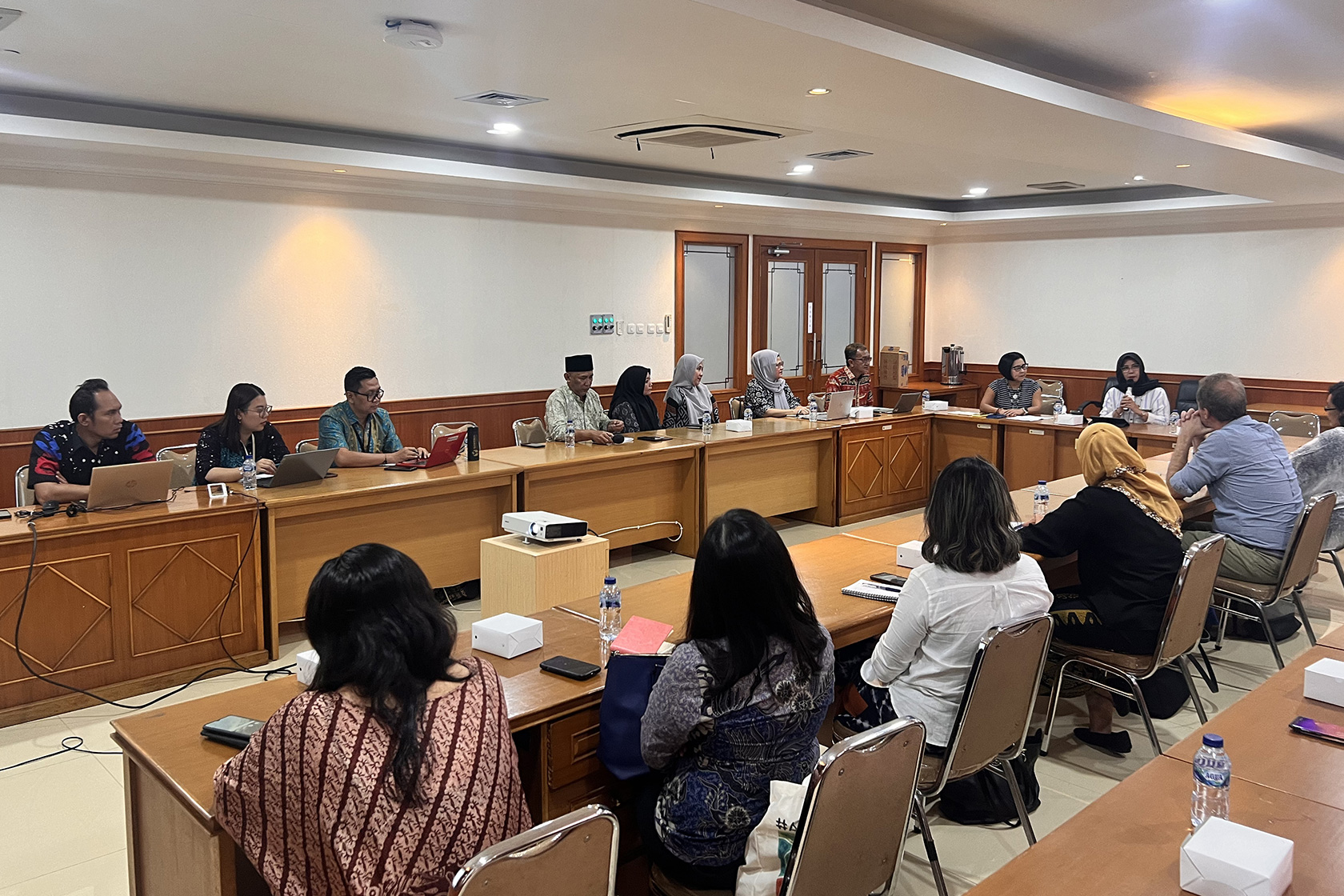
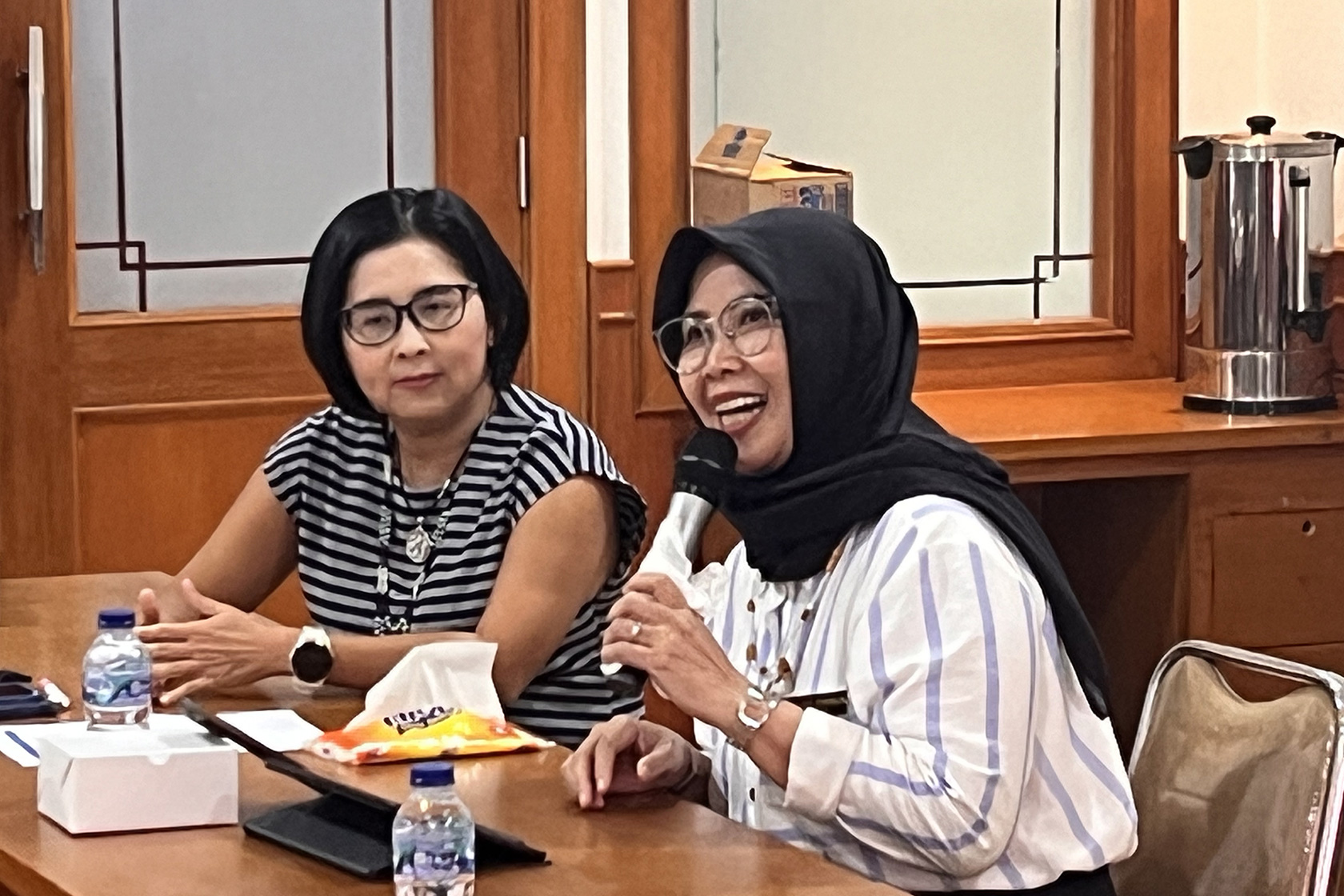
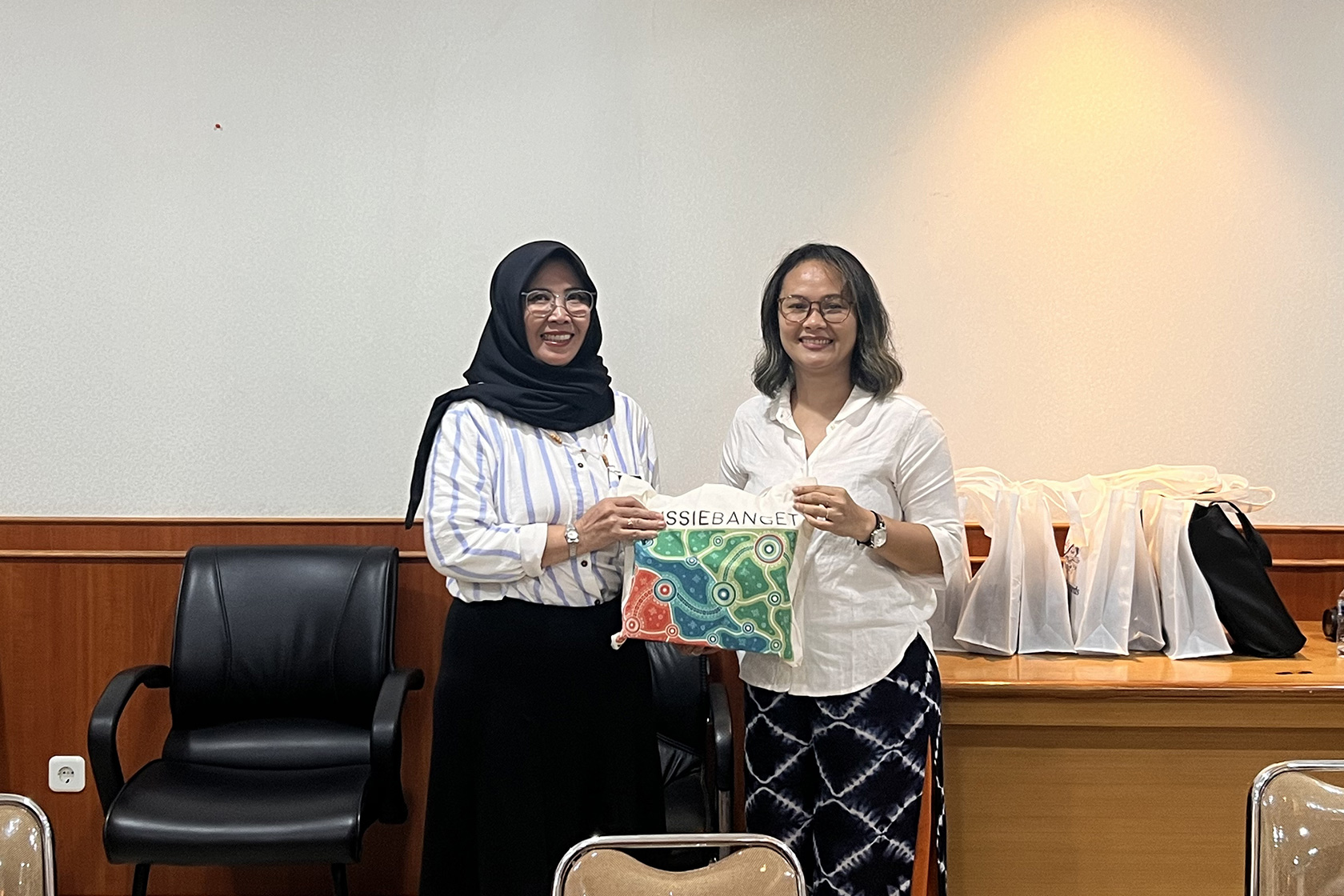
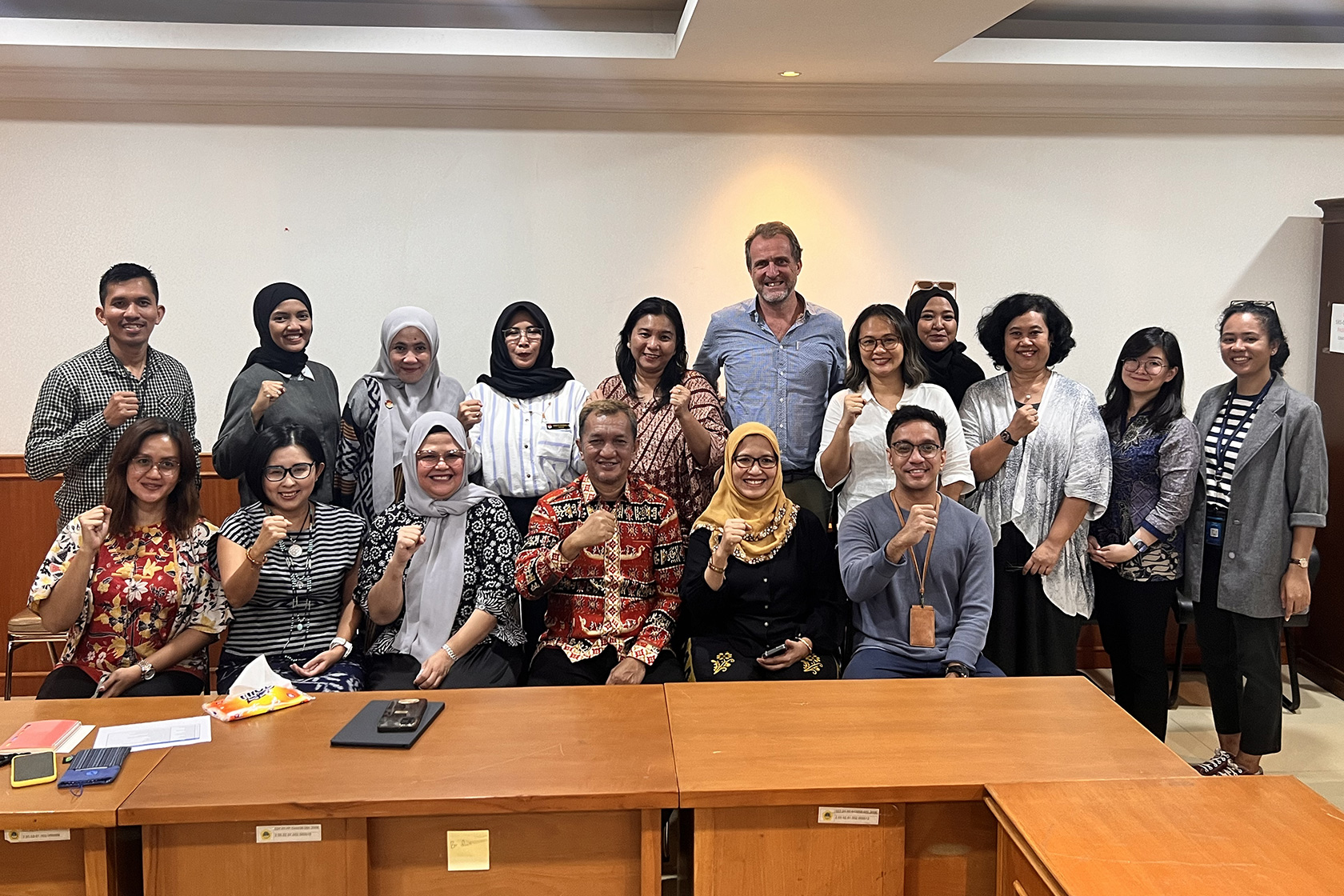

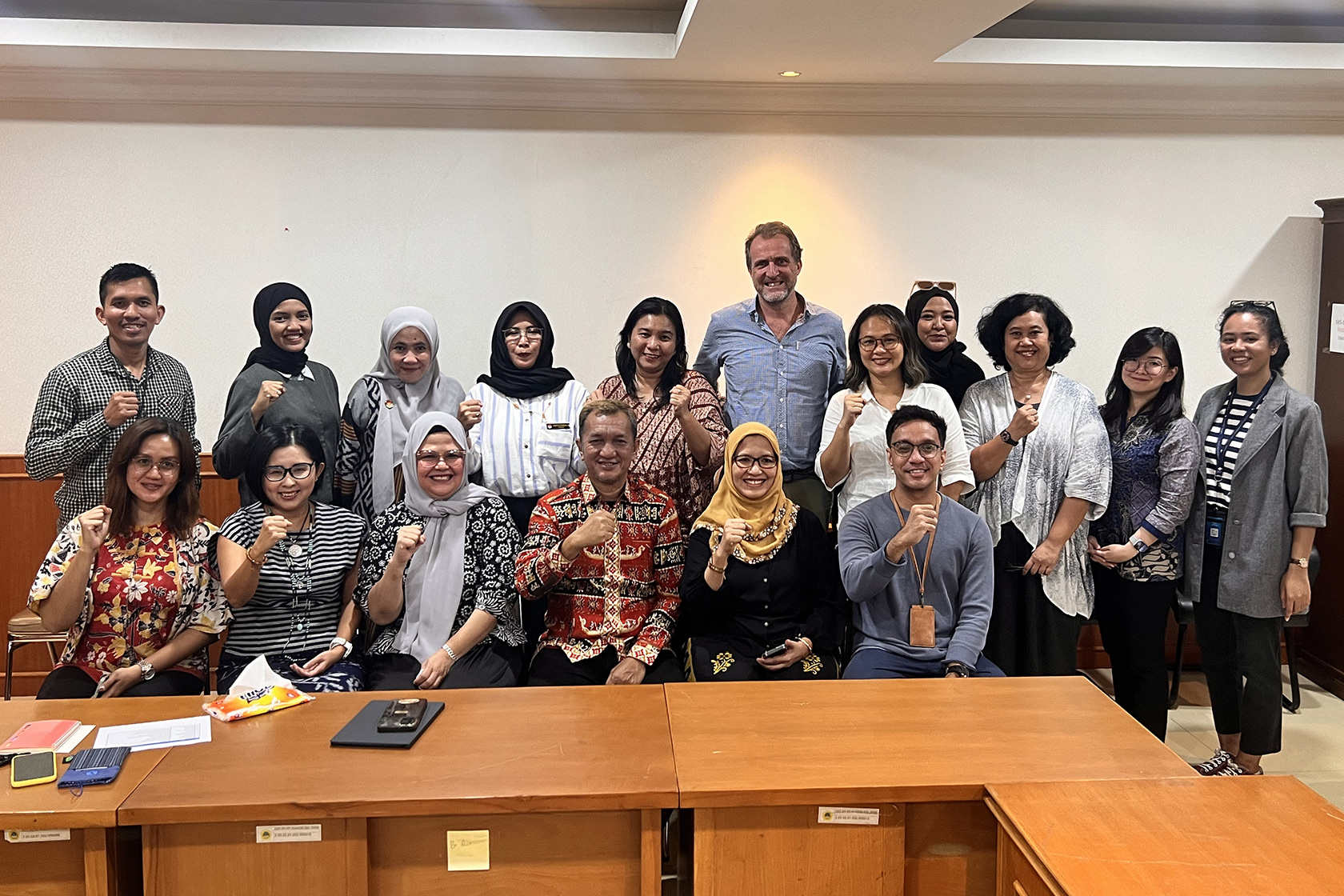
 Australia Awards in Indonesia Discussion with National Disabilities Commission Finds Fresh Insights on Disability Inclusion in Higher Education
Australia Awards in Indonesia Discussion with National Disabilities Commission Finds Fresh Insights on Disability Inclusion in Higher Education
